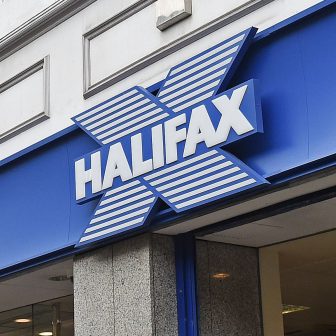First-time buyers are £824 a year better off than renters, although this obviously differs across the country, the latest data shows.
Halifax said the cost gap between being on the property ladder and renting has widened over the past 12 months.
Property purchasers in London are on average £4,606 a year better off than those renting. In the South East buyers are £2,578 a year better off, followed by East Anglia (£2,019) and Scotland (£1,848).
The narrowest gap between buying and renting is in Northern Ireland, where buyers are £539 a year better off, followed by East Midlands, where homeowners are saving on average £897. Overall, the gap has increased by 8% in the last year, which is owed in part to the pandeimc.
The Halifax Buying vs Renting Review is based on the housing costs associated with a mortgage on a three-bedroom property, compared to the average monthly rent of the same property type. Buying costs include mortgage payments, income lost by funding a deposit rather than saving, spending on household maintenance and repair and insurance costs.
The analysis shows that the monthly rental costs have increased by 10% to £821 in the past year, while monthly buying costs have increased by 1% to £753 during the same period.
In 2019, the difference was just 1%, meaning the saving on buying over renting was slightly over £48 a year.
Andrew Asaam, mortgages director, Halifax, said: “Lockdown restrictions may have held back renters planning to buy a property during the past year with its practical challenges, and while the stamp duty holiday race has helped drive record levels of mortgage approvals, the cost of renting has crept up in the same period.
“Although the biggest savings to be made – of around £5,000 a year – are unsurprisingly in the capital, homeowners in the South East, East Anglia and Scotland are also making the biggest savings a year, around £2,000 on average compared to their neighbours who are renting.
“Raising a deposit is still the biggest challenge for those looking to get on to the property ladder, but the average first home deposit has gone up by another £11,000 since the start of the pandemic.
“We know that first-time buyers will benefit from steps that make finding a deposit more of a reality and the new Help to Buy Mortgage Guarantee scheme could be a gamechanger for those saving hard to take the first step and often paying rent at the same time. We have also committed to lending £10bn in 2021 to help people buy their first home this year.”


Home owners don’t have to pay Section24 tax on their mortgages.
You must be logged in to like or dislike this comments.
Click to login
Don't have an account? Click here to register
While renting suits some lifestyles, most tenants would aspire to owning their own home. Many tenants pay more for rent than they would pay for a mortgage. Problem is they don’t qualify for a mortgage not having a sufficient deposit and on paper not being able to afford the payments.
Lending rules should be more flexible. The fact that a tenant has been regularly paying (high) rent should somehow be factored in when they apply for a mortgage. Landlords may wish to dispose of their rental properties at some point. The existing tenants might be the ideal buyers in many cases. There should be some sort of scheme to assist them to buy what they already rent. I am not advocating any sort of right to buy at a discount scheme (that would destroy the PRS just like it destroyed social housing) but some form of national or local Government subsidy scheme.
You must be logged in to like or dislike this comments.
Click to login
Don't have an account? Click here to register